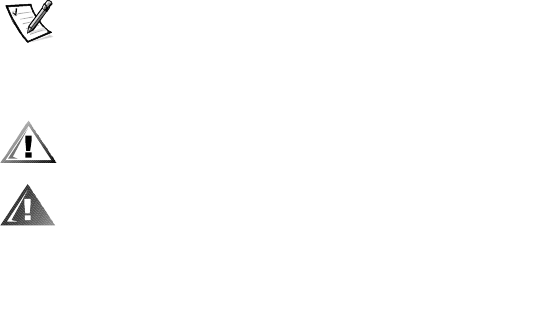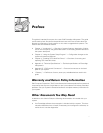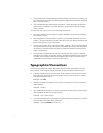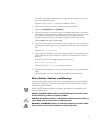
iii
In contrast, commands presented in the Courier New font are part of an instruc-
tion and intended to be typed.
Example: “Type format a: to format the diskette in drive A.”
•
Filenames
and
directory names
are presented in lowercase bold.
Examples: autoexec.bat and c:\windows
•
Syntax lines
consist of a command and all its possible parameters. Commands
are presented in lowercase bold; variable parameters (those for which you substi-
tute a value) are presented in lowercase italics; constant parameters are
presented in lowercase bold. The brackets indicate items that are optional.
Example: del [
drive
:][
path
]
filename
[/p]
•
Command lines
consist of a command and may include one or more of the com-
mand’s possible parameters. Command lines are presented in the Courier New
font.
Example: del c:\myfile.doc
•
Screen text
is a message or text that you are instructed to type as part of a com-
mand (referred to as a
command line
). Screen text is presented in the Courier
New font.
Example: The following message appears on your screen:
No boot device available
Example: “Type md c:\programs and press <Enter>.”
•
Variables
are placeholders for which you substitute a value. They are presented in
italics.
Example: DIMM
_x
(where
x
represents the DIMM socket designation).
Notes, Notices, Cautions, and Warnings
Throughout this guide, blocks of text may be accompanied by an icon and printed in
bold type or in italic type. These blocks are notes, notices, cautions, and warnings,
and they are used as follows:
NOTE: A NOTE indicates important information that helps you make better use of
your computer system.
NOTICE: A NOTICE indicates either potential damage to hardware or loss
of data and tells you how to avoid the problem.
CAUTION: A CAUTION indicates a potentially hazardous situation which, if
not avoided, may result in minor or moderate injury.
WARNING: A WARNING indicates a potentially hazardous situation which,
if not avoided, could result in death or serious bodily injury.






